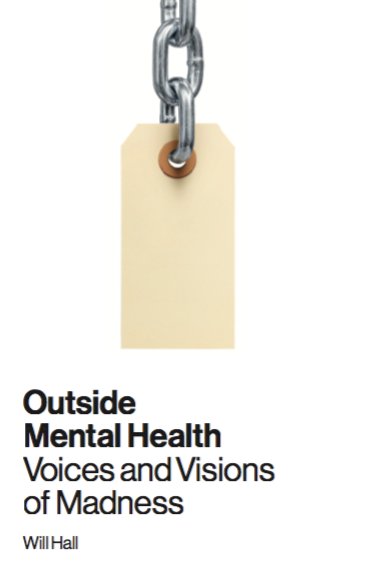Open Dialogue Alternative: Mary Olson

Is a ‘psychotic’ crisis inside one person’s mind — or does it happen between people, in their relationship? Can therapy untangle the web of madness by addressing the family, providers, and entire social network?
Smith College social worker and Fulbright scholar Mary Olson discusses the innovative work of Jaakko Seikkula and colleagues’ Open Dialogue Approach in Finland, which has achieved dramatic success helping people through extreme states labeled ‘psychosis’ and ‘schizophrenia’ — while relying much less on medication and hospitalization.
http://www.dialogicpractice.net
http://beyondmeds.com/2010/01/04/alternative-for-psychosis
http://www.willhall.net/opendialogue
Podcast: Play in new window | Download (Duration: 53:16 — 48.8MB)
Subscribe: Google Podcasts | RSS



























 Creative Commons 2.5 copyright
Creative Commons 2.5 copyright
Marion – you make it very hard for people to communicate with you!! I’m a psychologist (please don’t puke quite yet) and I want very much to ask you about your experience (or your lack of experience) with mental hospitals. It sounds like from what you say, that you had a psychosis or near-psychosis and managed to evade “treatment” for it. This is the very thing I’m interested in! Given the extreme scarcity of Soteria-like facilities in the US, many people are having to learn how to cope with nonordinary experience on their own, and (not surprisingly) a lot are failing to learn enough to protect themselves from damaging psychiatric treatment. I want to know more about how certain lucky or smart individuals manage to AVOID this kind of damage. If you’re willing to help, please contact me and let’s talk!
Thanks,
Mary in SC
PS. If you want to know my credentials, go to
http://tinyurl.com/nc88zf
Mary: Sorry to have let you wait for a reply, but it’s a while since I’ve been at this site, so I didn’t see your comment before today.
I’m critical, yes. I’m also highly critical towards the whole mh business. That said, I do know that there are some “good guys”(and gals) out there, but according to my experience they are few and far between. It’s certainly not my intention to lump all professionals in the field together, and I do actually have positive, constructive exchanges with some of them. Also, I did get help from one of them myself, and I don’t want to devalue that. Although I think, that it wasn’t as much the professional who helped me as it was the human being. So, no, I don’t automatically puke as soon as somebody identifies as a psychologist (not even when they identify as a psychiatrist). But I do start to feel a little nauseous when they want me to believe, that, if nothing else, at least “schizophrenia” must have something to do with some kind of genetic predisposition, and I definitely puke when I hear the chronic brain disease-bs.
Anyhow, when I say that I think, we need to get rid of professionalism, I mean primarily the bio-psychiatric, medical one. But also the kind professionalism in the field of psychology that represents the somewhat Freudian idea that it would be the individual who is the problem, why it pathologizes the individual, and misses to look at interpersonal relationships.
My experience with hospitalization is that, luckily and only by a hair’s bredth, I escaped being hospitalized. Nevertheless, I know what the mere threat did to me (and btw to the relationship with my therapist), and I know what actual hospitalization did to countless people, I’ve heard talking about their experience with it.
You can find my story, the long, though not at all fine-tuned, and still very angry, version, here at Beyond Meds (where I see yours is too).
A shorter list of personal circumstances that, as I see it, and among others, made recovery possible for me, you can find at this blog post, about half-way through the post.
Mary Olson mentions that elements of Open Dialog are used in several European countries, and yes, they are. BUT: I recently came across a paper, analyzing mental health staff’s reaction to the implementation of elements of Open Dialog in a local community mental health setting in Denmark. – For everybody who’s interested and who speaks Danish, the paper can be found here.
Interestingly, everybody was very positive about the “technique” as such, while there were certain reservations towards the “ideology” behind Open Dialog, especially among psychiatrists. 1. As they still were viewing crisis as a, primarily, medical problem, they were not thrilled about Open Dialog’s drug policy, referred to it as unethical – and, in fact, did not follow it. – It makes you wonder, taken into account that the outcomes of the Open Dialog approach are known to these people. 2. Psychiatrists were reluctant to let go of closed staff-only meetings, as they felt sort of “gagged” in the open network meetings. – Quite telling , I’d say. Obviously many clinicians, especially psychiatrists, feel a profound need to objectify/dehumanize the “patient”, at least to some degree, and at times, and have a hard time asked to entirely give up their professional distance/authority. – A few simply refused to have open network meetings only, and insisted on having closed meetings alongside the network meetings, which resulted in the staff very quickly returning to “business as usual”, meeting behind closed doors, and structuring (reducing) the network meetings to being nothing much more than psycho-education for the family/network. 3. Psychiatrists were very unsympathetic towards the idea of bringing up and having a closer look at communication/interaction patterns in the family/network. Their argument being that relatives already were burdened enough with having to cope with a “mentally ill” family member, so they shouldn’t be additionally burdened with what they might perceive as, well, blame. 4. On an overall perspective, most of the psychiatrists expressed serious concerns about the approach as they felt it rendered them less in control (of the “patient”).
Bottom line: to implement certain, “technical” elements of Open Dialog without adopting the “ideology” behind, IMO implies the danger that it is reduced to “treatment as usual” coming along in a new, shiny package, but without really changing anything about the contents. I see a great potential in Open Dialog, but I also see this potential drown in a one-sided focus on techniques, on professionalism, as long as the “ideology” is more or less rejected. While I believe that a paradigm (or “ideology”) shift from viewing crisis as an individual (and medical) problem to viewing it as an interpersonal communication problem probably would render the almost zealous efforts that can be observed among staff to do it “right” superfluous, as the “technique” would come naturally.
Thank you for asking about abusive relationships, Will! To me it was good to learn that Open Dialog (the real deal, not the elements-only version), although it doesn’t say that trauma/abuse necessarily always needs to be the cause of crisis, doesn’t exclude it from being a possible cause either. However, I think that also Open Dialog still to a certain extent misses the point when it limits the definition of trauma to what our culture at any given time defines as such. IMO, our entire culture, modern western civilization, is in itself traumatizing/abusive. Whether a person responds to this with crisis, one or the other kind, or not, depends not least on whether and to what extent this person has had the possibility to establish his/her own language in which to express the trauma (and eventually let go of it).
Last but not least, I still see Open Dialog contradict itself in that it on the one hand distances itself from pathologizing the experience of crisis, and on the other doesn’t offer the individual in crisis other alternatives than a stay at a hospital in case she is in need of a safe place to go to. Hospitals are per definition places for sick people. I myself reacted to the mere possibility (make that threat) of having to go to a hospital with additional extreme fear and anger (make that additional “symptoms”), as I perceived the idea of being a patient at a hospital as utterly humiliating. No matter how much Open Dialog or not, it would have pathologized my experience, and in this it would have devalued my being in this world, my entire existence as a human being. So, I wish Open Dialog would offer people in crisis a place like Soteria House to go to, instead of a hospital ward.
All in all, and although I see Open Dialog in a more positive light by now than initially (also thanks to this interview), I still think, we need to move beyond and away from (psychiatric) professionalism entirely in order to come to fully accept people in crisis as equal human beings, and to be able to offer them optimal support.
Marian
First, I apologize for the long delay in responding to this comment. I found this comment extremely intelligent, interesting, perceptive, and helpful. I agree with her in many respects. I do not think that Open Dialogue can be employed as a technique without embracing the whole philosophical project of making crisis response more democratic, more participatory, and more decentralized. Further, I wish to communicate to Marian that I am listening to her idea of creating Soteria-like alternatives to hospitalization, and in fact, we may be able to do exactly this in a new setting that we are developing in California. We are hoping to combine Open Dialogue teams with community apartments.
> Thank you for such a serious and thoughtful comment. I really value your ideas and observations. All the best, Mary Olson
…I loved this interview very much!!!!
I am wondering one thing though: She states that “strengths based” is problematic. Do you think she meant that it has become just another buzzword to be thrown around at this point???…Or do you feel that she meant something else all together?
Thanks so much for interviewing and posting this! Great! Great! Great!!!!! ~JOhnny (thefuzzymode@yahoo.com)